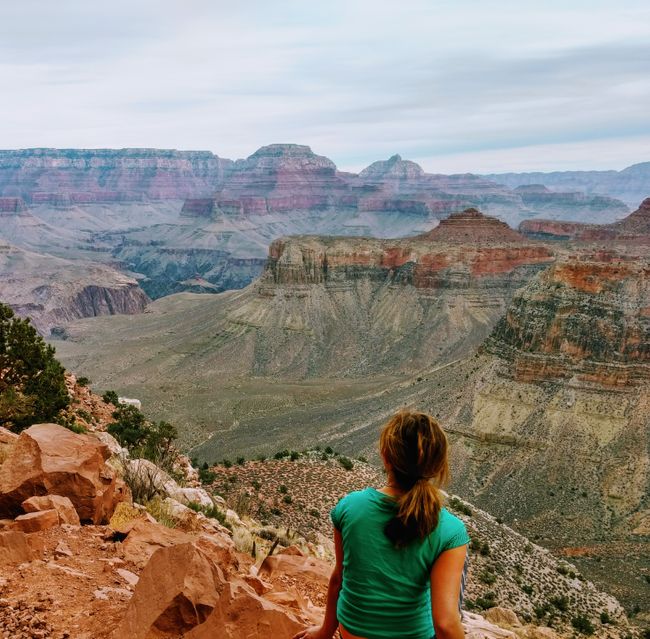Elephants and mountain villagers
Objavljeno: 23.01.2019
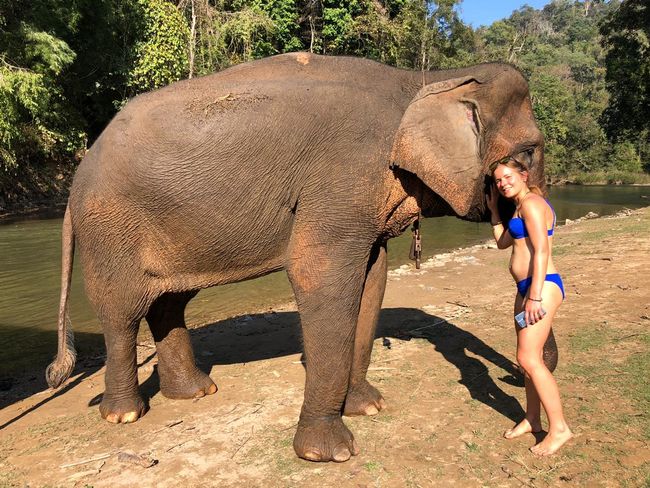
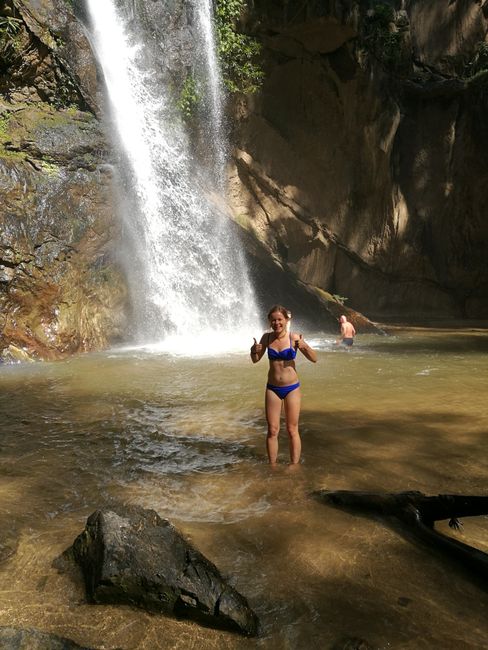
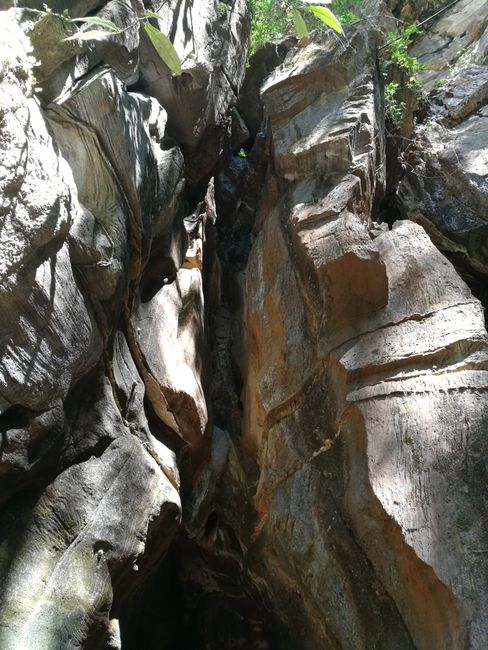
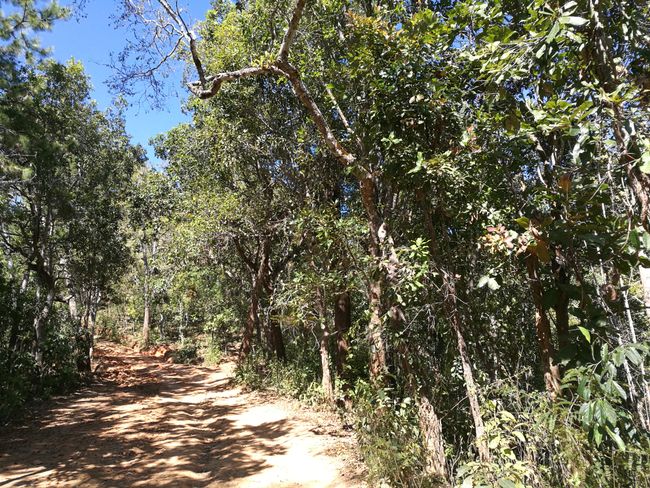
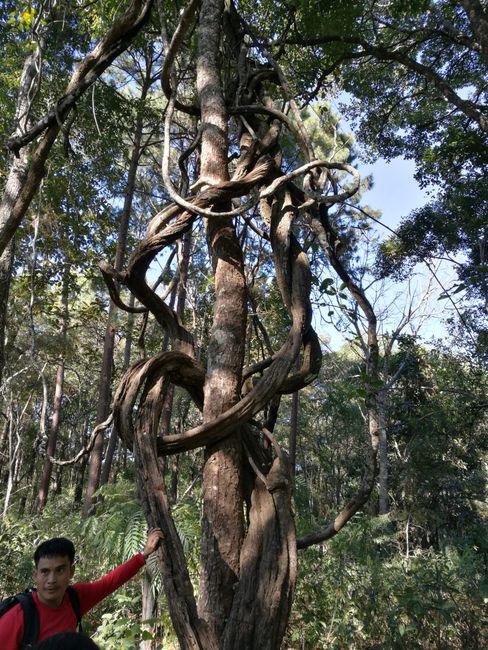
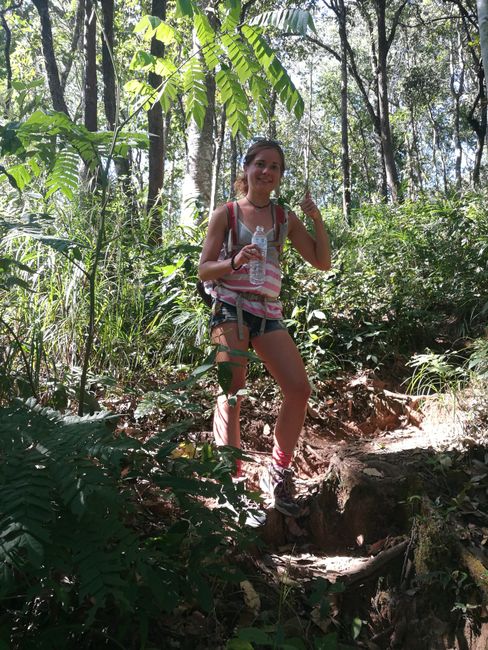
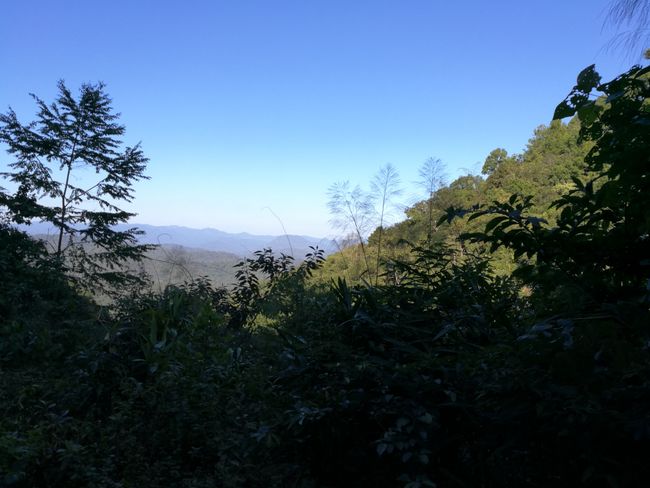
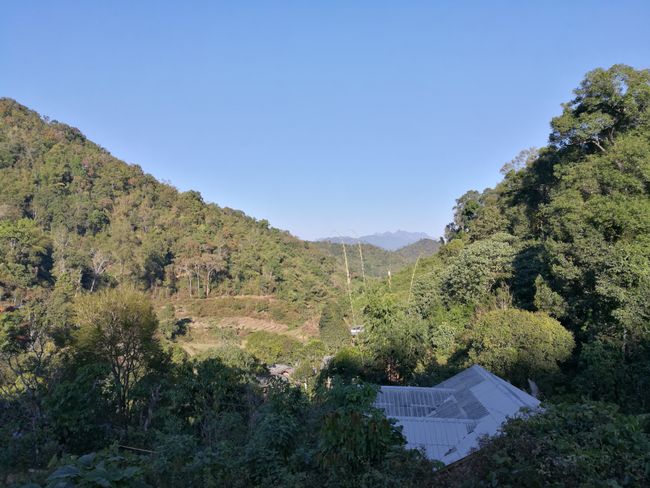
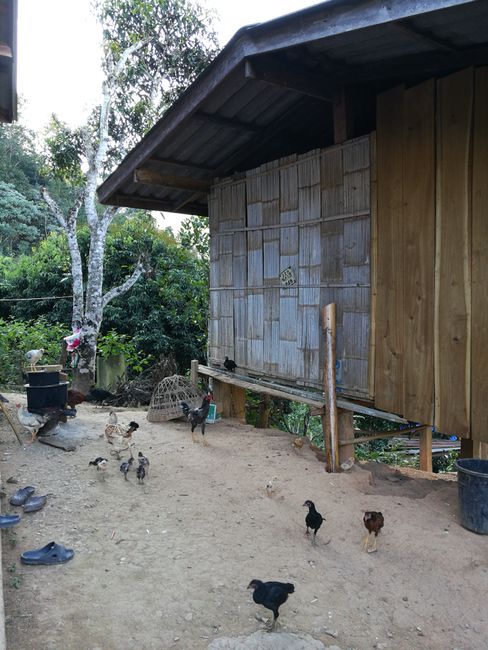
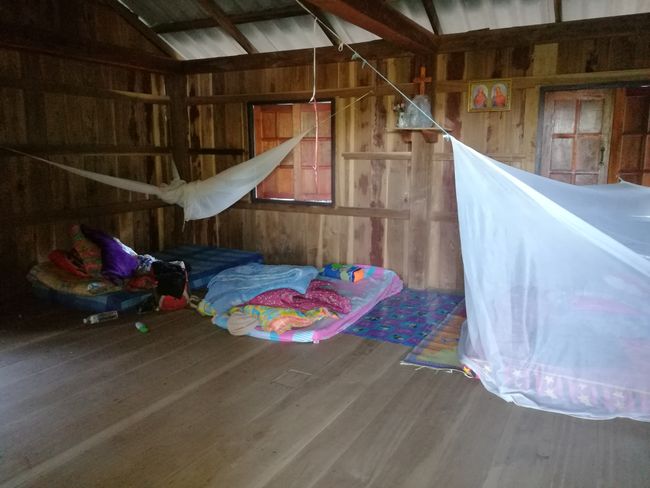
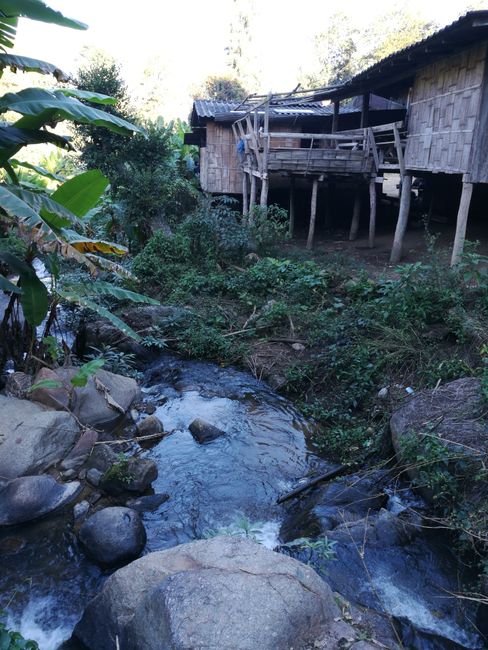
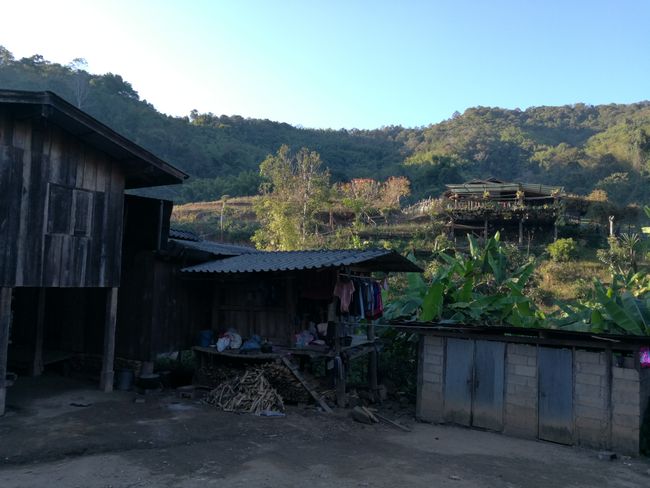
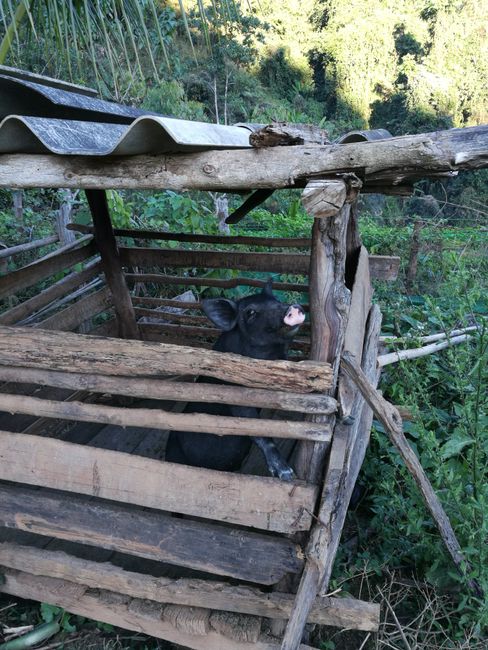
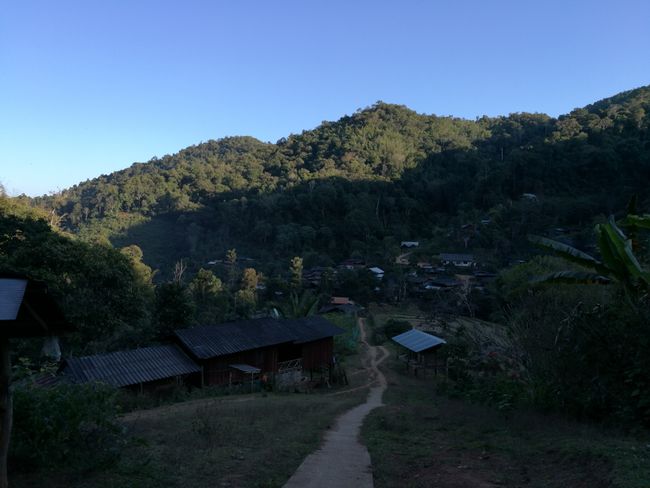
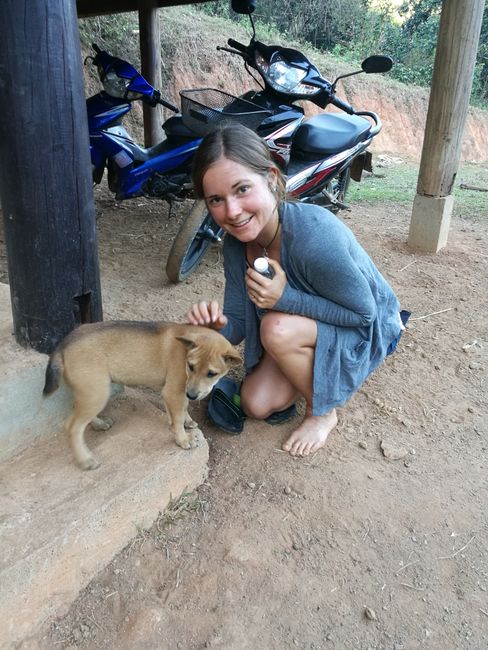
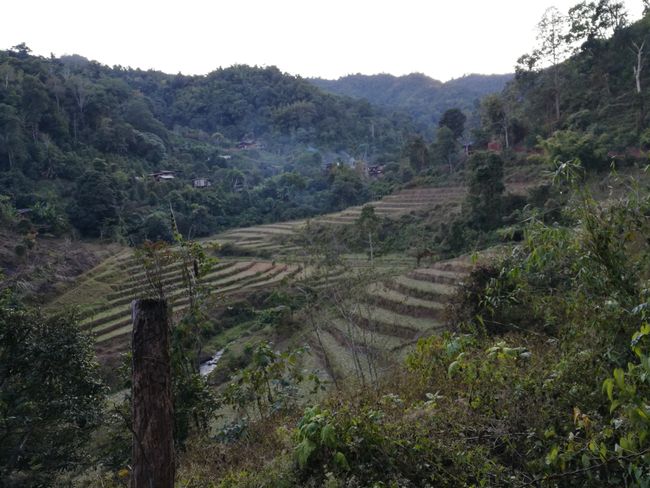
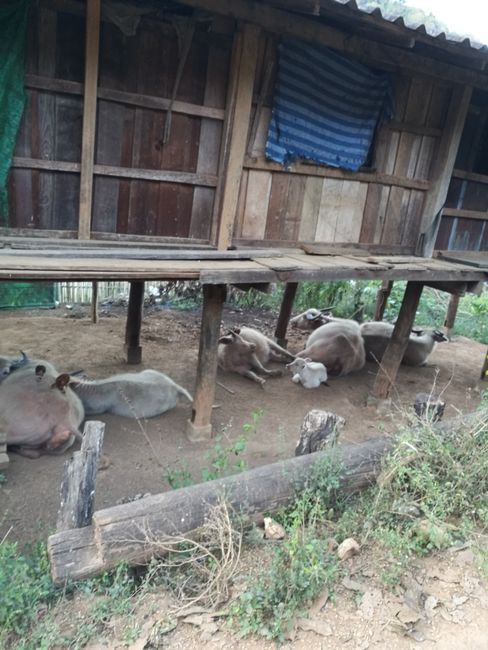
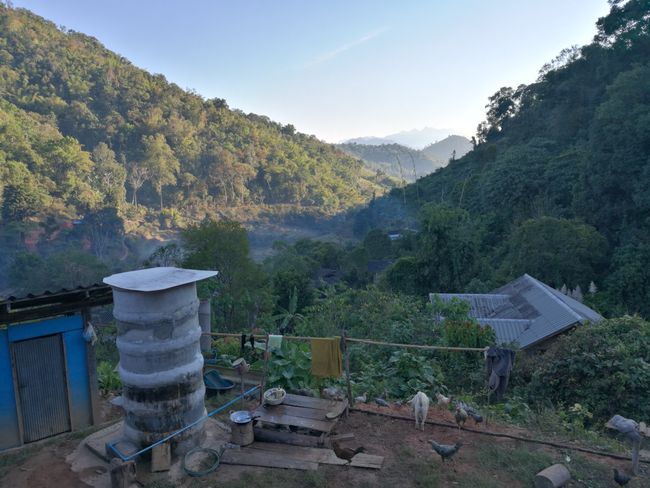
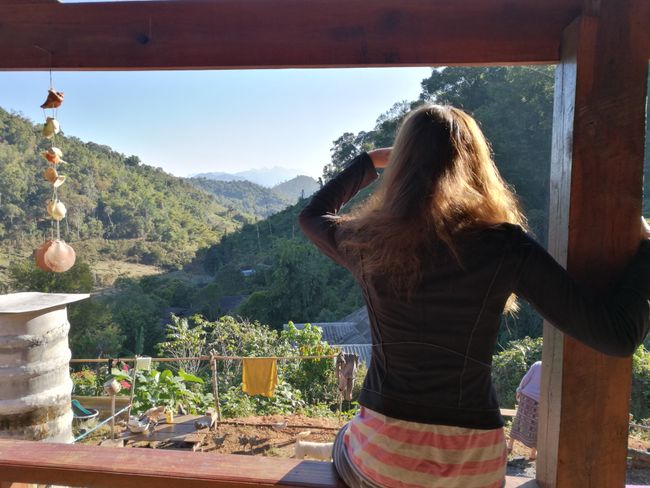
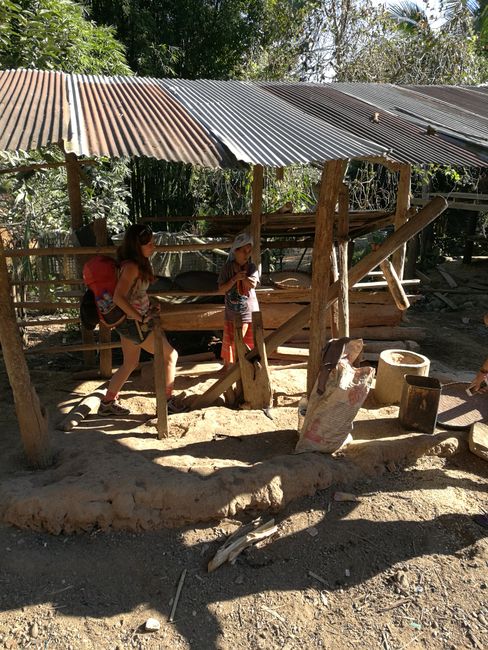
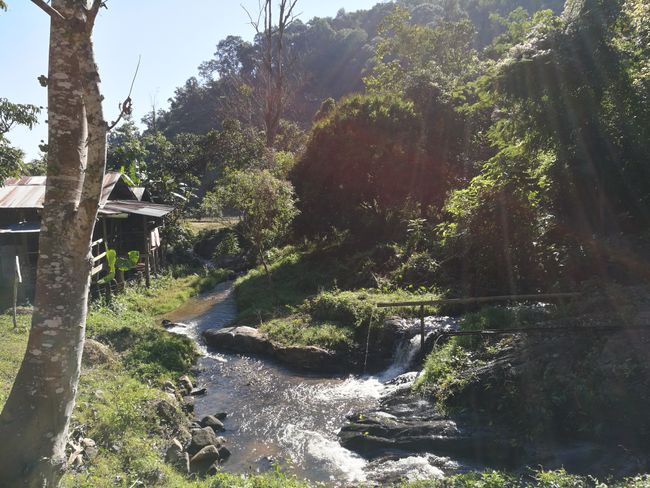
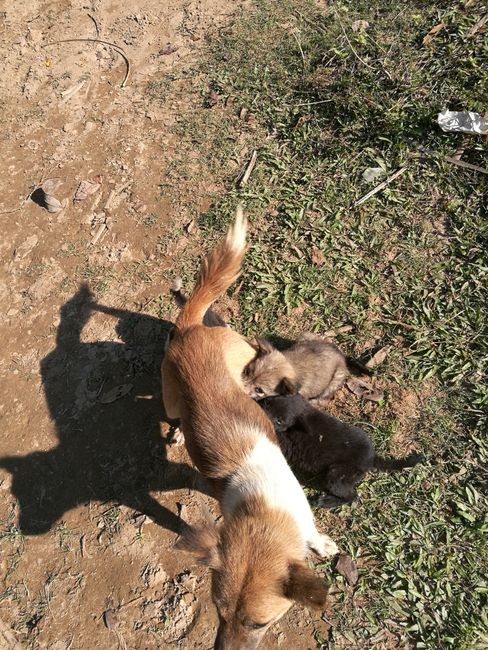
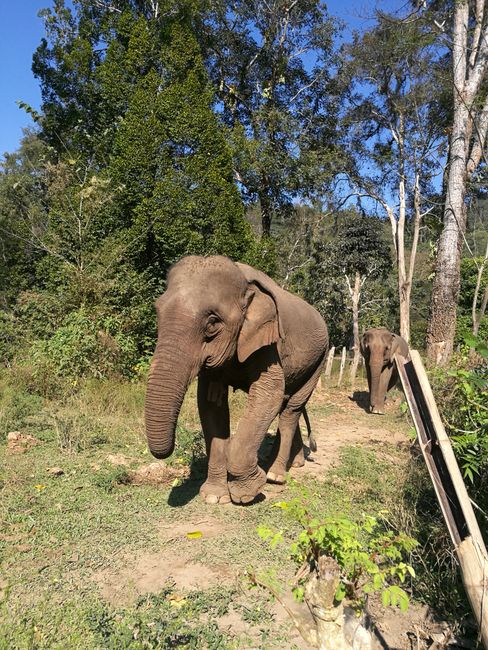
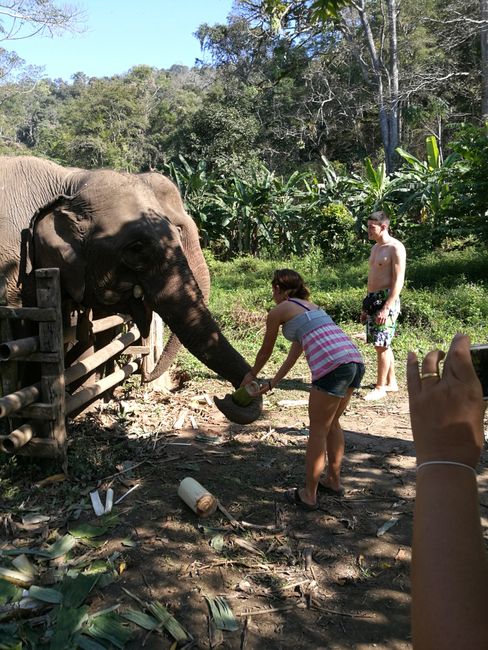
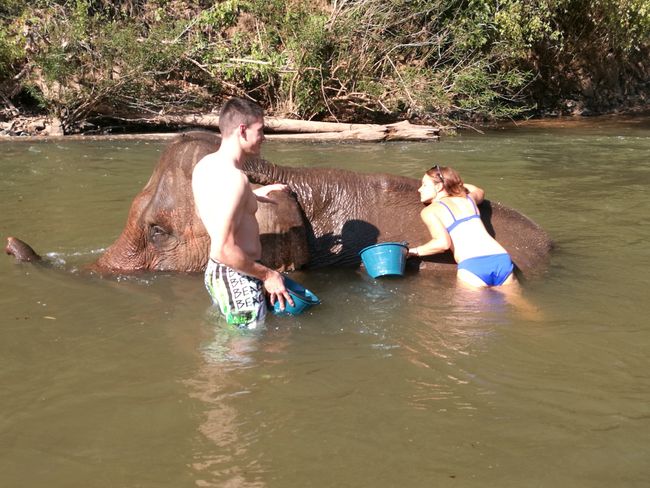
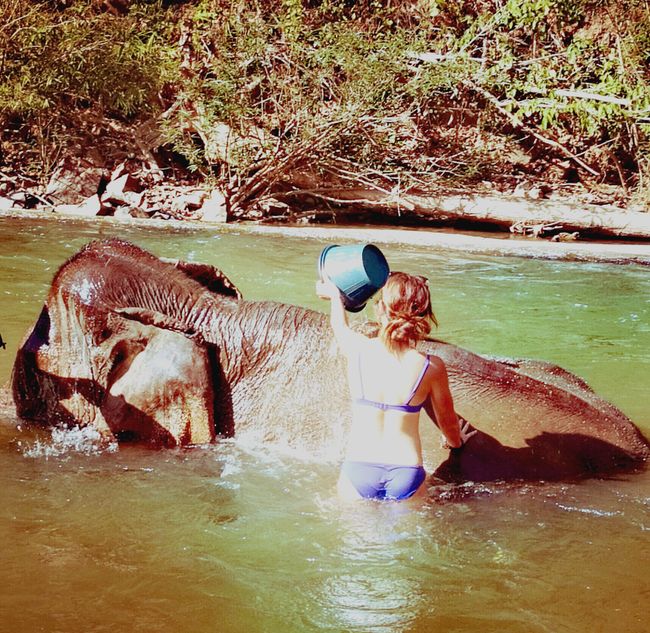
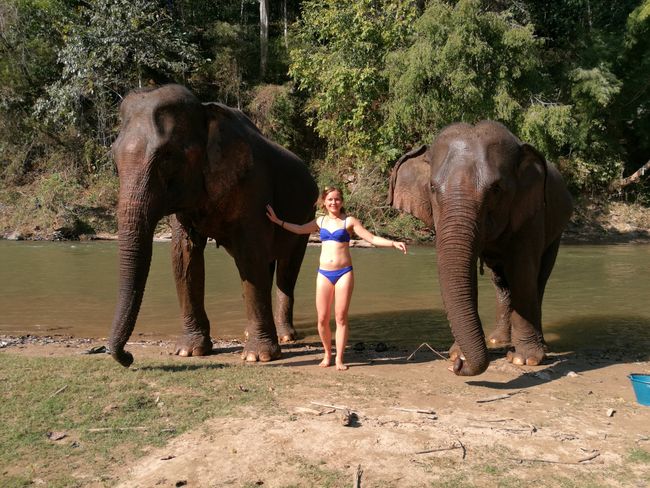
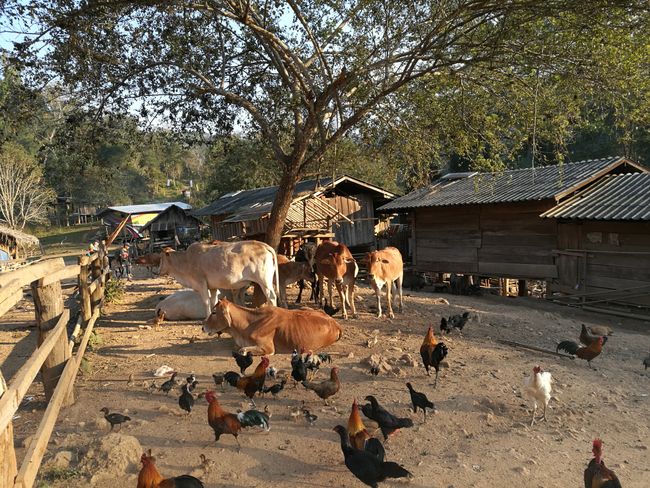
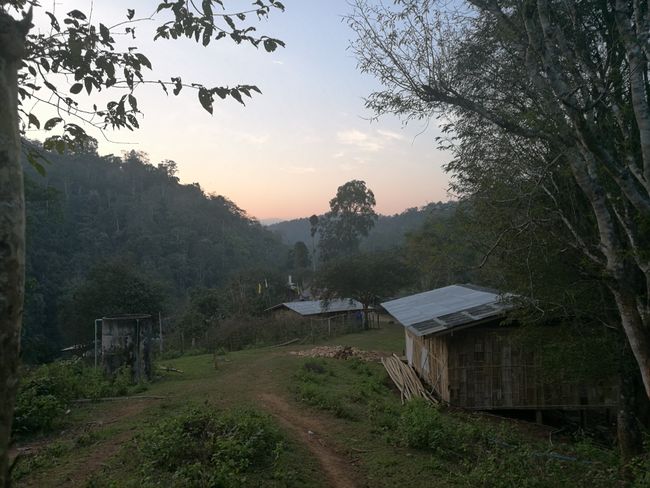
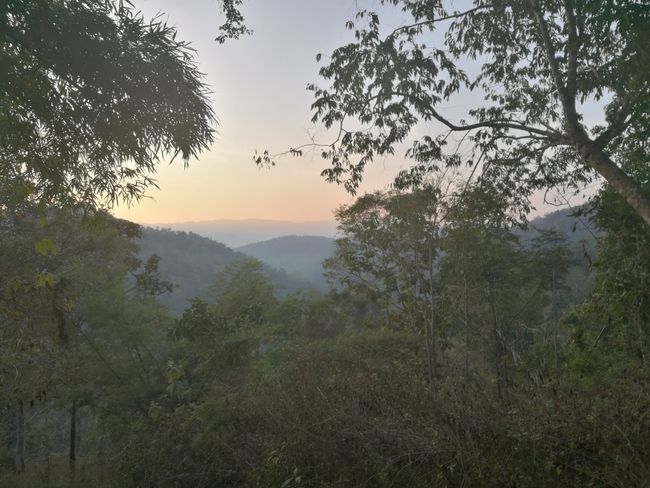
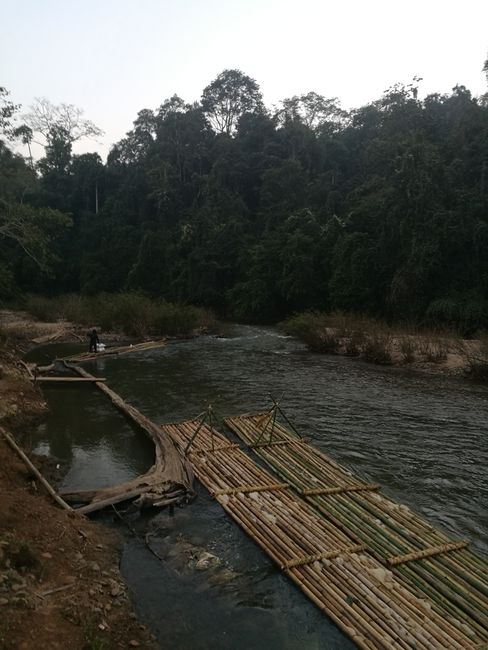
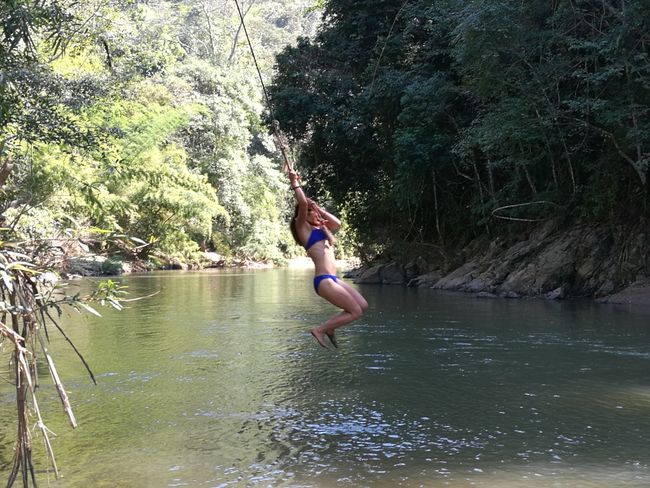
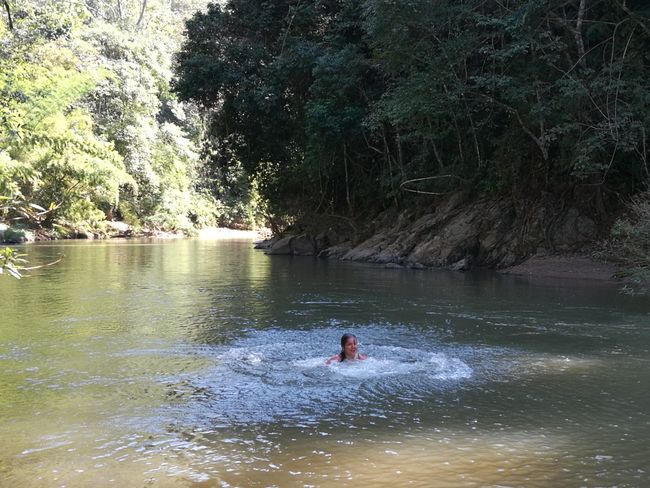
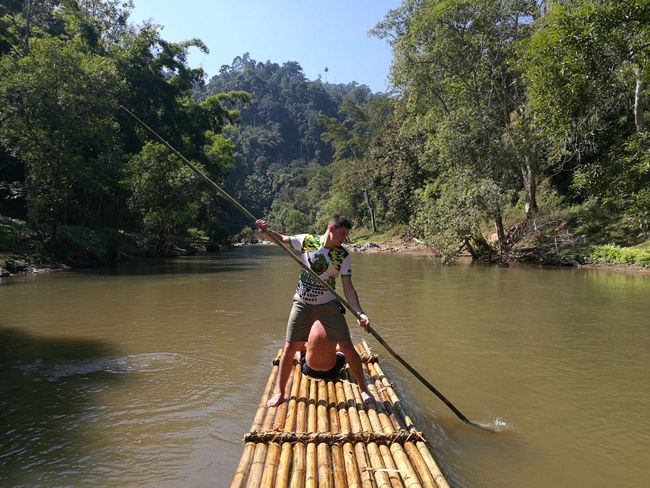
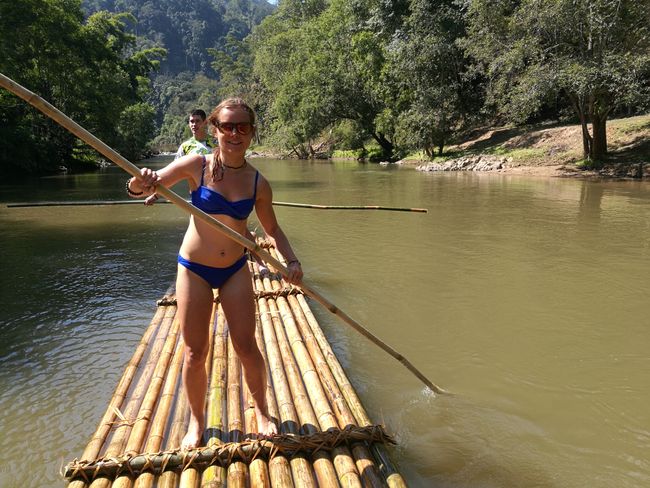
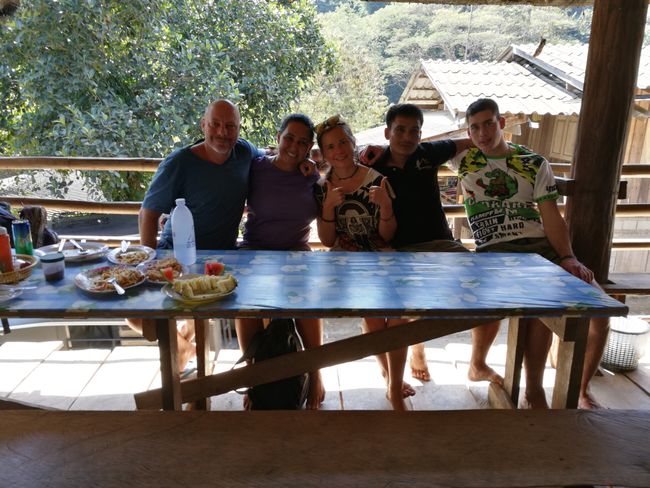
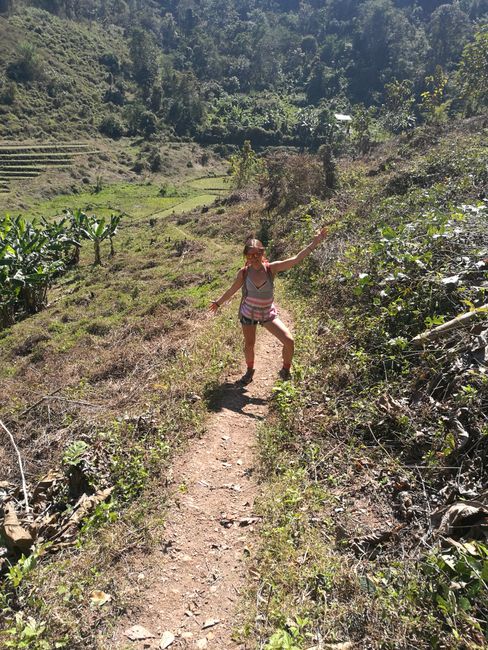
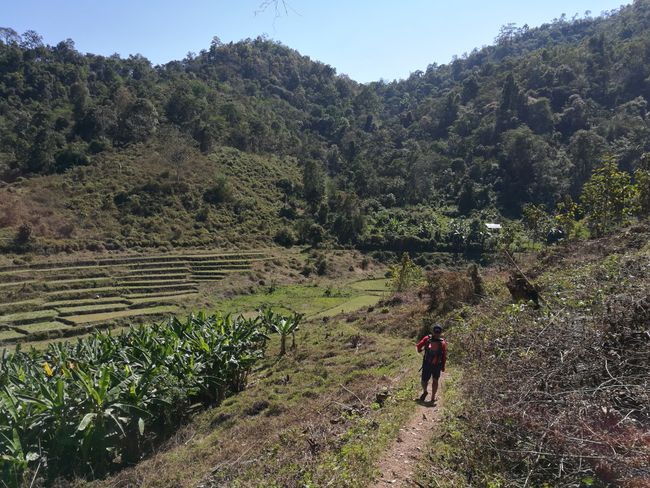
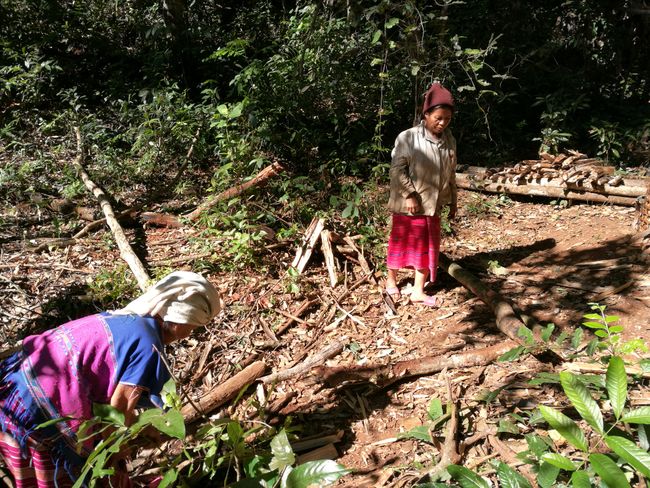
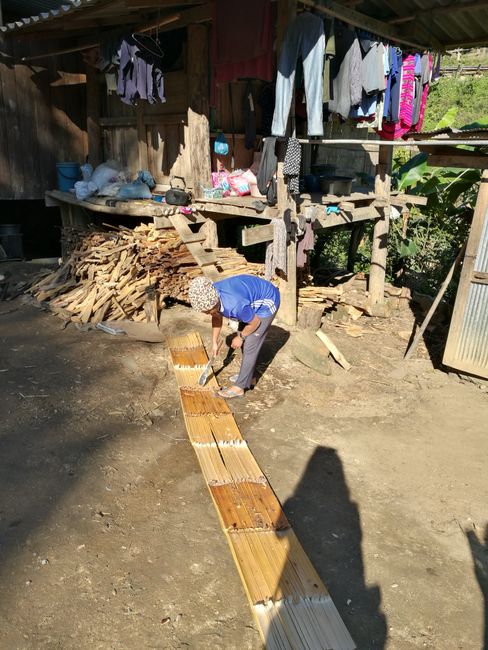
Naročite se na glasilo
Hello dear ones :) This time with warm greetings from Chiang Mai, where I look back on 3 days of adventure. I had the opportunity to participate in a really great tour and am very grateful for some exciting experiences that I would like to tell you about now. So, what did I do in the last three days: I was already picked up early in the morning for the tour and got to know Jacki, our tour guide, as well as 3 other tour participants: Brett and Fabiola, a British-Brazilian couple traveling the world, and Stefan, also a German solo traveler like me. We were supposed to spend a few exciting days together and fortunately got along right away. Brett and Fabiola, both in their mid-forties, gave up their good jobs (HR manager and computer scientist) to escape the boring life and go on a 15-month world tour. Super exciting people, I learned sooo much from them during our time together. For example, that you can achieve so many goals if you just believe in yourself. That it's worth taking some risks and overcoming your fears. That you're never too old to take a chance. That you can start living your dreams every day. That travel never has to end. That children don't mean freedom is completely over. That it is only yourself who limits yourself through your own thoughts. And that sometimes, despite all the challenges, there is true love and that you can stand by each other, even when continents initially separate you. During our time together, we had so many fruitful conversations and discussions, alone that has shaped me a lot. I really hope to meet Fabiola and Brett again during their world tour through Europe, with some people you just get along too well to leave it at a travel acquaintance. But what did we experience besides debates about the meaning of life: After we were picked up in the morning by our guide Jackie, who spoke moderate English, we first drove to a traditional Thai market to buy enough food for the next few days. These markets are crazy: so many delicious, fresh fruits that taste much better here than when imported to Germany. So many exotic spices, vegetables, and decorative items. But also so much fish and meat, which makes me wonder how not all buyers of these unrefrigerated goods infested with flies get salmonella. Fortunately, Jackie mainly bought vegetables, tofu, fruit, and of course rice for our trip. After the authentic market experience, we zoomed off in a tuktuk (so the four of us sitting in the back of a truck with unbearable diesel fumes, I don't want to know how much it pollutes the environment) for about 2 hours towards the mountains and the jungle. After a great lunch in a small mountain village, we started our first jungle mountain hike, walking for 2 hours (unfortunately a bit short for my taste) on interesting jungle paths with many explanations in English from Jackie, heading to the first 'hill tribe'. What is a hill tribe? An old, traditional Thai mountain village where people live like in Germany maybe 200 years ago. When we arrived there, I was really amazed, I had never seen such a drastic way of life before: The people live without electricity, without shopping opportunities, without showers, without money, simply in small, fragile wooden huts. In the huts, there is usually a small 'kitchen' that gets water through makeshift plastic pipes from nearby waterfalls and rivers. In the living-sleeping room, the whole family sleeps either on the floor or on old, rock-hard mattresses. The toilets are very basic, of course without running water flush, which is quite normal in Thailand. After doing your business, you just pour a bucket of water, by the way, there is no toilet paper in Thailand at all, if you use it as a tourist, you must never throw it in the toilet, but in a trash can.
What do the people in the mountain villages do all day? Well, their main concern is to be self-sufficient. The men hunt in the jungle (here they eat among other things squirrels, snakes, and monkeys) or work in the rice fields, which, by the way, look beautiful. The women cook, feed the animals, or chop wood in the surrounding jungle and then carry it back to the village. Even for me as a passionate weightlifter, that would be too heavy, I wonder how these sometimes much older and much slimmer ladies carry the wood. Everyone also has their own animals, so chickens, pigs, and cows roam freely through the village and the jungle. If you're hungry, something is slaughtered or jungle fruits are harvested, or of course, the cultivated rice is eaten. Of course, no one in the mountain village has machines, so harvesting rice is hard work. After the rice is harvested, the husk also has to be removed, which the villagers diligently hop on. If the rice fields become infertile after a few years, the whole community moves to the vicinity of the next rice field to create new huts there and build their lives around the main source of food. The children of the villagers go to school, which is more than an hour's walk away on a mountain. 6 years of schooling is the maximum, after that, the children are put to work in the fields to ensure the family's survival. Alarm clocks are not necessary, they are woken up by the rooster and the sunlight. So, the daily rhythms of the villagers change depending on the season. As I said, there is no money, one hand washes the other. They help each other and make sure everyone is taken care of. If a villager becomes sick and needs to see a doctor in the nearest town, a cow is sold outside the village to have money to pay the doctor's bill. If someone in the village community gets old, it is the duty of their children to look after them. That's why most villagers have many children at a young age. Many young people have heard of Chiang Mai and want to leave the village, but are not allowed to because they are responsible for the well-being of their parents. This may all sound very negative, but it certainly isn't. I experienced the village people as very laid-back, nobody was stressed at work. Everyone got along with everyone, strolled calmly around and had a chat. The location of the village was unbelievably beautiful in the middle of the mountains, I don't think there is such a beautiful living environment in Germany. The people seem happy, while most of them smoke their tobacco pipes in leaves in a permanently relaxed manner. They have everything they need, they don't know any different, and live from day to day in a relaxed manner. At least until recently: Here is the catch, because for some years now there have been tourists who visit the villages and show the villagers that there can be a 'different' way of life. This tourism issue is a very double-edged sword... on the one hand, tourism is good for the mountain villages. Tourists bring money to the villages by paying for accommodation, the locals' cooking skills, handicrafts, and often also leaving donations. So, I saw the construction of a small church (surprisingly, the mountain villages, unlike the rest of Buddhist Thailand, were Catholic) and a community center funded by a Westerner. The school building was also modernized on a donation basis. The money that tourists bring in is thus enabling the villagers to go to cities like Chiang Mai for the first time, to afford a scooter, etc. On the other hand, it is extremely strange to be a tourist in this village. Of course, after only 2 hours of hiking, I wasn't tired and explored the village on my own. It was a very strange, uncomfortable feeling. I felt like a spectator on my exploration tour of the village, as if I were something better with my smartphone and my clean clothes, observing lower-class people. Although I tried to greet in the local language, most of the locals seemed not very positively inclined towards me. Jackie, who by the way comes from the village himself and made it to tour guide, explained this behavior to me with the shyness of the villagers, but I felt more like an observer in the zoo. As exciting as the experience was, it also brought up many uncomfortable feelings. We discussed for a long time whether our visit to this village was positive or negative for the villagers and could not come to a clear conclusion. Because one thing is clear: While on the one hand we can show the mountain people that there is more to life than just the simple village life and what electricity and mobility mean, on the other hand, we probably also trigger more envy, greed, and desire in the villagers. They don't have what we Westerners have yet, which may make them envious and greedy. They certainly lived happier in their small cosmos when they were not yet aware of the crazy, different life with many possessions out there. However, this probably previous greater happiness of the villagers should not prevent us Westerners from going to the villages, it is an incredibly difficult decision. In any case, it was super interesting to spend a night like a hill tribe person. So, we all slept in one room on completely hard mattresses, froze at night because of thin blankets (it gets really cold in the mountains at night), were woken up all night long by the sounds of animals, and had to wash ourselves in river water, in which the pigs wallowed and the cows did their business. A very formative experience that makes you incredibly grateful and humble for the luxury we have in the West. But at the same time, it is also very formative for how often we stress ourselves unnecessarily and how relaxed we could be if it wasn't always about more money and more possessions. You could feel the relaxation in the village at every corner: even the children were very calm and well-behaved, the dogs left you completely alone without any sign of aggression, and neither the cows nor the pigs were shy. In the village, I also became aware again how disconnected we Westerners are from nature. While we unconsciously shovel pork, beef, and chicken into our mouths, I realized again here what it means to kill and eat a pig. In order to fill our stomachs, we kill such cute creatures without being aware of it. We buy incredibly cheap rice in the supermarket without realizing how much work goes into rice cultivation. During our village stay, we were well taken care of, the village women worked wonders with the food we bought. The food tasted fresher and better than anything I eat in Germany, but you also have to close your eyes when it comes to the preparation. Nobody really washes their hands, the dishes are washed with river water. During the washing process, hundreds of stray dogs lick plates and pots, there is no soap or dishwashing detergent. Well, as long as it tastes good ;). After a short, freezing night, Jackie gave us another tour of his village the next morning. Even though Jackie himself comes from the village, the villagers didn't seem particularly excited about our visit, but they obediently showed us their lives (feeding animals, sorting rice, chopping wood, ...). After visiting the first village, we hiked to a river, where we then went rafting. But rafting not just for fun, but actually for transportation purposes, to be able to cross the jungle more easily. So, many villagers use self-built rafts made of bamboo to get around in the jungle by tying bamboo together, grabbing a bamboo paddle, and off they go. Our group also got to experience this rafting adventure with self-built bamboo rafts and we had a great time. We spent several hours on the raft and it was by no means boring. On the one hand, we could admire the incredibly beautiful mountain jungle scenery and listen to the jungle animals. On the other hand, the river had a strong current with some mini waterfalls, which we had to cross with the bamboo rafts using good technique to prevent tipping over. Fortunately, Jackie was a great rafting instructor and the men did most of the steering and paddling, so we moved forward safely. But the highlight of our rafting tour was not only the beautiful nature and action on the river, but another village that we visited. Because there were elephants there.
Of course, starting tomorrow, I'm heading straight into the next adventure. Where to? To an eco-lodge in the middle of the mountains, recommended to me by another lovely British traveler on Koh Phangan. What does eco-lodge mean? I'm going back to a mountain hut, this time one that works ecologically: That means only eating from our own garden, drinking from our own water source, electricity from our own solar system, heat from our own stove. I'm really looking forward to learning about a sustainable way of life there and to have a quiet retreat in the mountains before the end of my trip. Again, I suspect that there will be either no mobile network or no battery, so please don't worry if you don't hear from me. I'm sure I'll be fine there and I wish you the same in the beautiful snow.
Love,
Naročite se na glasilo
Odgovori
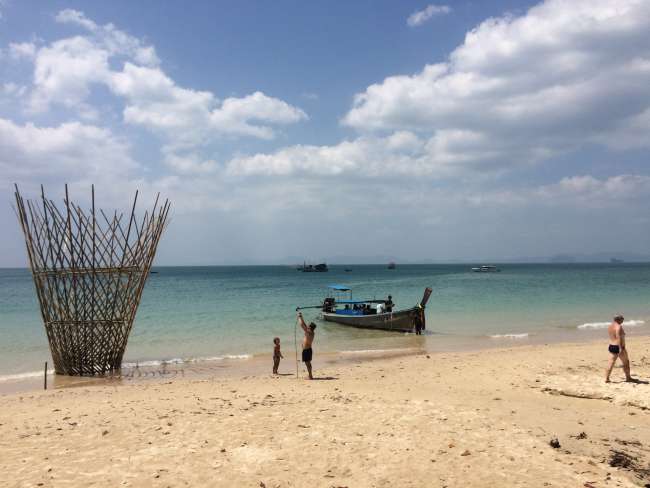
Poročila o potovanjih Tajska

